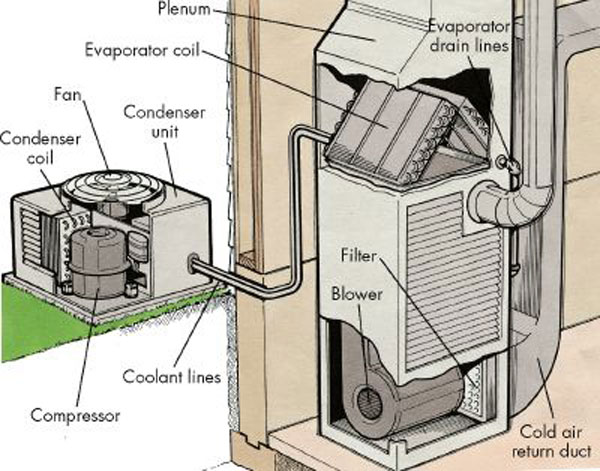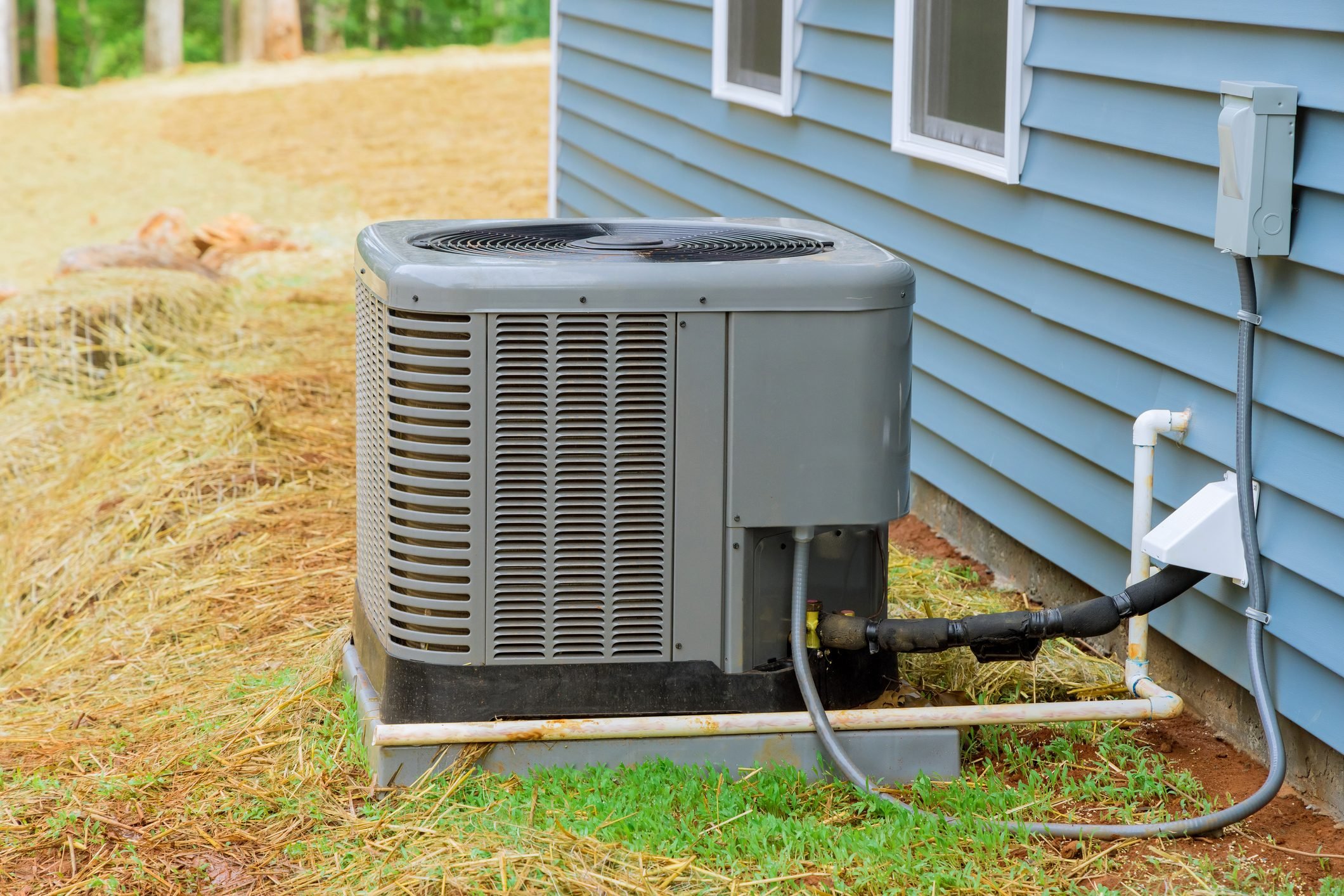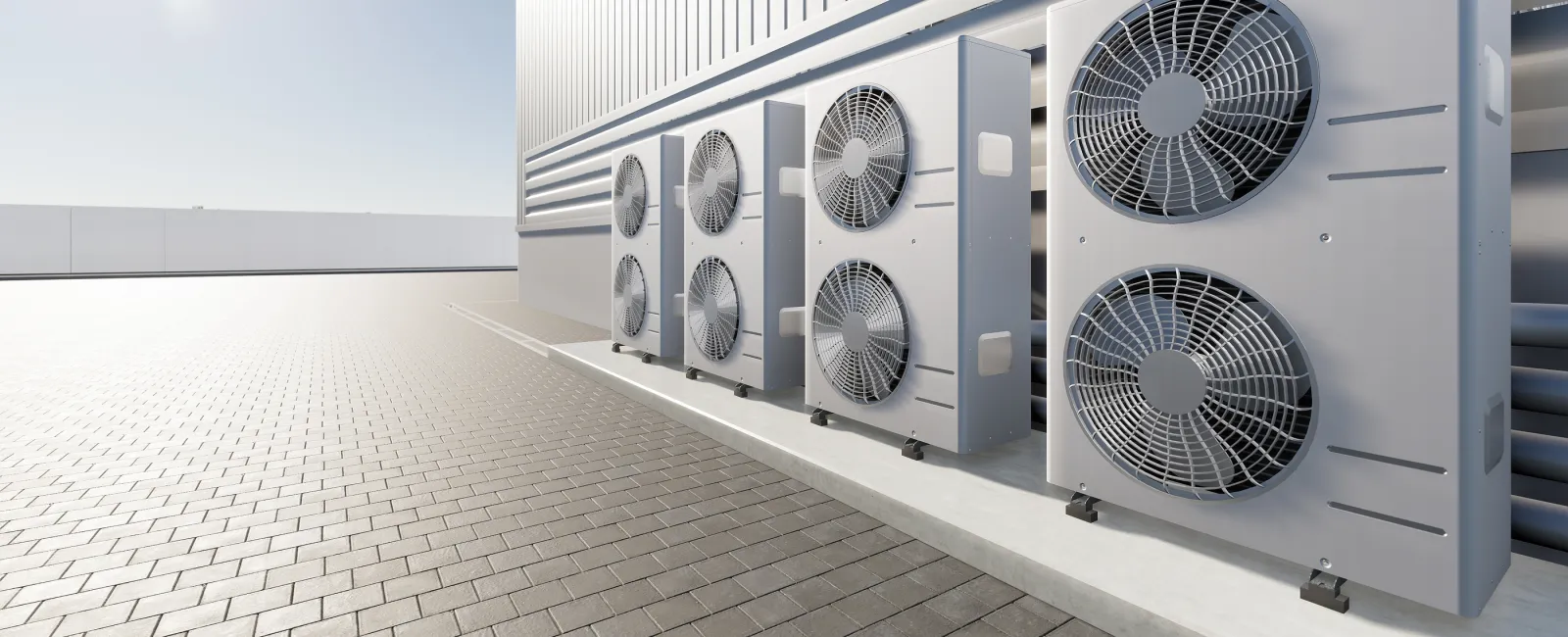Understand how HVAC experts ensure resilient comfort solutions
Discovering the Essential Components of an Effective HVAC System
An effective a/c system is improved a number of essential components that operate in harmony. Each component, from the thermostat to the ductwork, plays an essential function in keeping comfort and power performance. Comprehending these aspects is vital for optimizing efficiency and boosting indoor air high quality. As one checks out these elements, the complex relationships between them disclose understandings right into boosting overall system effectiveness. What certain variables add most to this performance?
The Function of the Thermostat in HVAC Effectiveness

Frequently ignored, the thermostat plays a crucial role in the performance of Cooling and heating systems. This little tool functions as the main nerve center, managing temperature setups and ensuring excellent comfort within a room. By accurately picking up the ambient temperature level, the thermostat interacts with the ventilation, air, and home heating conditioning devices to keep the wanted climate
An effective thermostat decreases power intake by activating the a/c system only when needed, consequently avoiding excessive home heating or air conditioning. Modern wise and programmable thermostats enhance this effectiveness further by enabling customers to set routines and from another location change setups, adapting to daily regimens.
Moreover, the positioning of the thermostat is important; incorrect place can lead to unreliable temperature level analyses, leading to inefficient operation. In general, a well-functioning thermostat not just boosts convenience but likewise adds significantly to power cost savings and the long life of the heating and cooling system.
Comprehending the Value of Air Filters
Air filters serve an essential feature in heating and cooling systems by assuring that the air distributing within a space remains healthy and balanced and tidy. These filters catch dust, allergens, and various other toxins, avoiding them from being recirculated throughout the atmosphere. By capturing these fragments, air filters add to improved indoor air high quality, which can greatly profit owners' health and wellness, especially those with allergies or respiratory system problems.
Furthermore, maintaining clean air filters boosts the efficiency of HVAC systems. Clogged up filters can limit air flow, creating the system to function more challenging to maintain wanted temperature levels, causing enhanced energy consumption and higher utility costs. Regularly changing or cleaning up filters is an essential maintenance action that can prolong the lifespan of heating and cooling tools. Ultimately, understanding the significance of air filters permits homeowners and building managers to take aggressive actions to guarantee a well-functioning, effective cooling and heating system that promotes a safe and comfortable indoor setting.

The Performance of the Heater and Heatpump
Heating systems and heat pumps are important parts of HVAC systems, in charge of supplying heat during chillier months. Heaters operate by home heating air via combustion or electrical resistance, after that dispersing it throughout the home using ducts. They normally supply quick heating and can be sustained by gas, electrical power, or oil, depending on the system kind.
Alternatively, heat pumps transfer heat instead of create it. They draw out warm from the outdoors air or ground, also in low temperature levels, and move it inside. HVAC experts. This dual performance permits heat pumps to likewise offer air conditioning in warmer months, making them versatile options for year-round climate control
Both systems require correct upkeep to guarantee effectiveness and long life. While furnaces master severe cold, warm pumps can be useful in moderate environments. Understanding their distinct performances aids house owners in picking one of the most suitable option for their home heating needs.
Discovering the Cooling Unit
The a/c unit is a crucial element of HVAC systems, readily available in numerous types to suit different needs. Comprehending the efficiency scores of these units is vital for making educated selections concerning power usage and cost. This area will certainly check out the varied sorts of air conditioning unit and clear up how efficiency rankings influence efficiency.
Kinds Of Air Conditioners
While different factors influence the choice of cooling systems, recognizing the different types readily available is essential for house owners and structure managers alike. Central air conditioning conditioners are created to cool down entire homes or structures, making use of a network of ducts for airflow. Window systems supply an even look at these guys more localized solution, ideal for single rooms or small spaces. Portable air conditioning system offer flexibility, permitting customers to relocate the system as required. Ductless mini-split systems are an additional option, integrating the effectiveness of main systems with the comfort of zoning, as they need no ductwork. Ultimately, geothermal systems harness the earth's temperature level for energy-efficient cooling. Each kind includes distinct advantages, making educated choices necessary for effective environment control.

Effectiveness Scores Described
Recognizing effectiveness rankings is important for selecting the right a/c system, as these metrics give insight right into the system's efficiency and energy intake. The most typical score for a/c is the Seasonal Power Performance Proportion (SEER), which gauges the cooling result throughout a regular cooling season separated by the overall electrical energy input. A greater SEER shows better efficiency. Additionally, the Power Efficiency Proportion (EER) is used for determining efficiency under certain conditions. An additional vital metric is the Energy Celebrity qualification, which symbolizes that a device meets strict power efficiency guidelines. By assessing these ratings, consumers can make educated choices that not just optimize convenience but additionally minimize energy prices and environmental impact.
The Value of Ductwork and Airflow
Effective ductwork layout and air flow management play essential roles in the overall efficiency and performance of a/c systems. Appropriate ductwork assurances that conditioned air is dispersed equally throughout a space, lessening temperature level variations and boosting comfort. Properly designed ducts minimize resistance to air flow, lowering the workload on cooling and heating devices and inevitably decreasing energy consumption.
Airflow administration includes strategically placing vents and registers to enhance the flow of air. This protects against common problems such as cool or hot places, which can occur when air flow is blocked or inadequately well balanced. Additionally, the right air duct materials and insulation can further boost performance by reducing heat loss or gain throughout air transit.
An effective ductwork system not just adds to energy financial savings but can also prolong the lifespan of a/c equipment by decreasing unneeded pressure (HVAC experts). Consequently, comprehending the importance of ductwork and air flow is crucial for achieving peak heating and cooling system efficiency
Regular Maintenance Practices to Improve Performance
Normal upkeep practices are essential for making certain peak efficiency of heating and cooling systems. These practices include routine assessments, cleaning, and necessary fixings to keep the system running effectively. Consistently changing air filters is important, as stopped up filters can obstruct airflow and lower effectiveness. On top of that, professionals should inspect and clean evaporator and condenser coils to stop getting too hot and energy waste.
Yearly specialist assessments are likewise suggested, as trained technicians can identify possible issues prior to they intensify. Lubing moving parts lessens deterioration, adding to a much longer life expectancy for the system. In addition, making certain that the thermostat works properly help in preserving optimal temperature control.

Frequently Asked Questions
How Frequently Should I Change My Thermostat?
Thermostats need to generally be replaced every 5 to ten years, relying on usage and innovation improvements. Routine checks are advisable to guarantee peak efficiency, specifically if experiencing irregular temperature control or boosted energy expenses.
What Size Air Filter Is Finest for My Heating And Cooling System?
The very best dimension air filter for a cooling and heating system varies by unit design. Generally, it's important to get in touch with the proprietor's handbook or examine the existing filter dimensions to assure peak efficiency and air quality.
Can I Set Up a Warm Pump Myself?
Mounting a warm pump individually is feasible for competent more people, yet it needs understanding of local codes and electric systems. Hiring a specialist is advised to ensure proper installation and suitable system performance.
Exactly how Do I Know if My Ductwork Is Reliable?
To identify ductwork performance, one must look for leakages, action air flow at vents, examine insulation high quality, and evaluate temperature distinctions in between supply and return air ducts. Expert assessments can provide complete insights right try here into overall efficiency.
What Are Indicators My A/c Needs Immediate Upkeep?
Indicators that an a/c system requires immediate upkeep include uncommon sounds, inconsistent temperatures, raised energy costs, unpleasant odors, and constant biking. Dealing with these issues quickly can protect against further damages and guarantee height system efficiency.
Air filters serve a necessary feature in A/c systems by guaranteeing that the air distributing within an area remains clean and healthy. Furthermore, keeping clean air filters boosts the performance of Cooling and heating systems. Ductless mini-split systems are another alternative, integrating the efficiency of central systems with the benefit of zoning, as they need no ductwork. Comprehending performance scores is important for picking the appropriate air conditioning unit, as these metrics give understanding right into the system's performance and power consumption. The ideal dimension air filter for an A/c system varies by unit design.